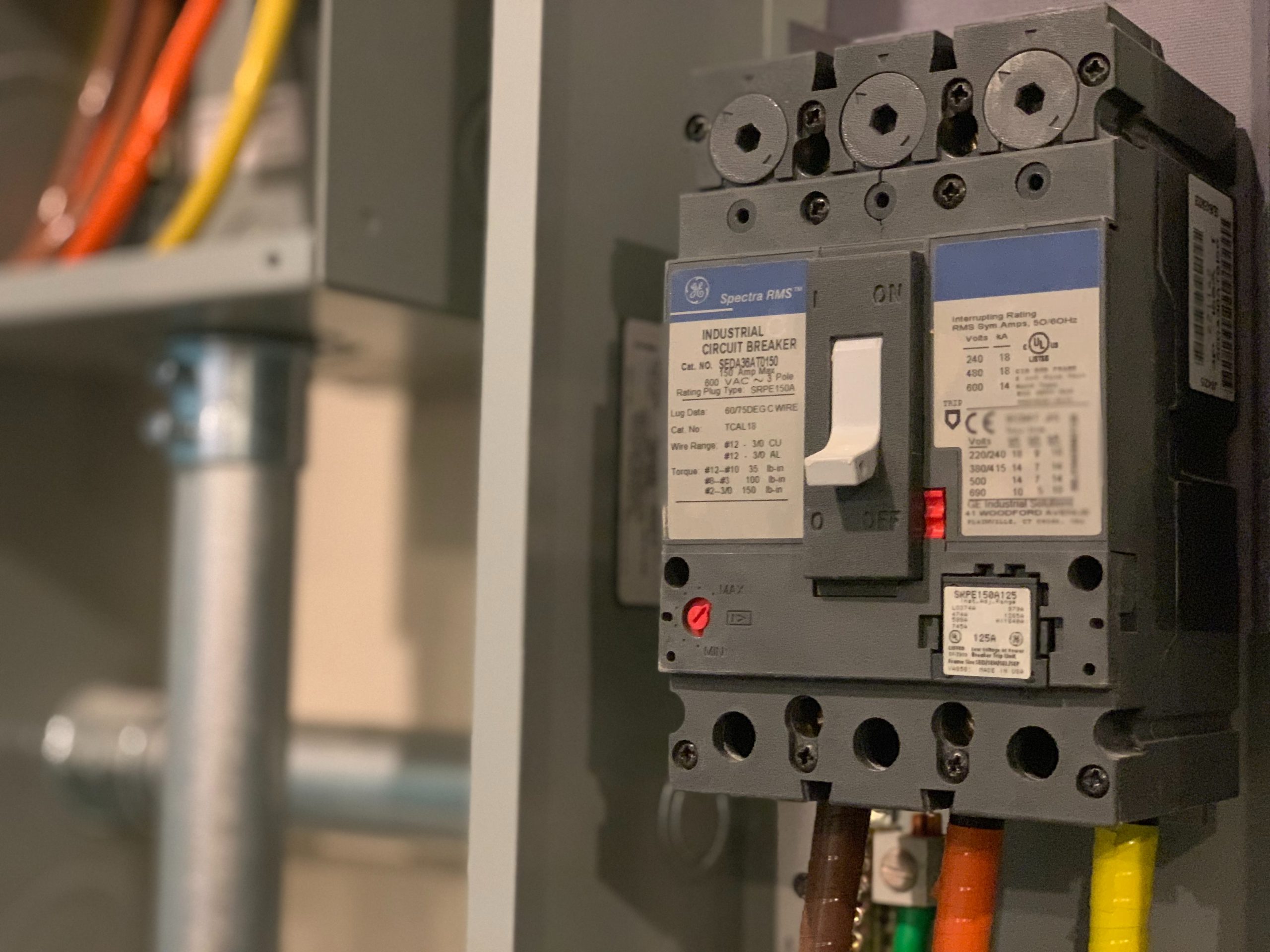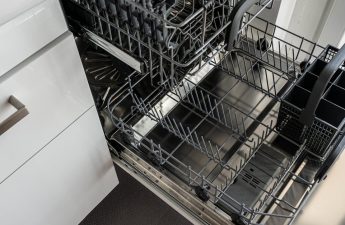This is the third in our three part series where we talk about developing a maintenance checklist for rental property. In the first we focused on common plumbing problems. In the second we addressed security, pest control, and exterior considerations. Here we’ll discuss some critical areas: Electrical, Fire Safety, and HVAC maintenance. Each of these systems pose risks to life and property, therefore we emphasize the importance of developing a routine maintenance plan so you can make sure they are functioning safely and efficiently.
Read Parts 1 & 2 of this Series
Electrical Maintenance Checklist For Rental Property
We believe electrical issues pose the greatest health and safety risks in rental properties. Old or faulty wiring presents the risk of electrocution and fire. Up-to-date detectors save lives, and are required by law.
We believe the following are the most important electrical considerations:
- Outlets: Ensuring correct outlet wiring is important for fire protection, safety, and proper function of anything that gets plugged in. Inexpensive testers allow any landlord to check polarity and grounding. Any electrician will know how to ground an un-grounded outlet, and often it is an inexpensive fix.
- Electrical Panels: Certain panels are known to pose fire hazard. Landlords should definitely get an electrician’s help to decide when to replace an electrical panels made by Zinsco, Edison, Pushmatic, and Federal Pacific – as well as any fuse box. These are the most commonly known of suspect panels, however there may be others. Not all products from these manufacturers are necessarily faulty. We recommend you consult a licensed electrician to evaluate your panel!
- Old wiring: At turnover, or during any renovation, consider upgrading your building if it has older wiring. Any 2-prong outlet suggests that there is no grounding, which is both a safety hazard and problematic when using modern 3-prong plugs. You don’t want your tenants using extension cords or adapters that convert a 2-prong outlet to 3-prong! “Knob and tube” wiring strikes terror in the hearts of many property owners. We recommend replacing it as soon as possible, as it is all quite old and fundamentally less safe than newer products and methods. Here’s a broad summary on the history of wiring.
Electrical Tip:
If your wiring is newer than knob-and-tube that doesn’t mean it shouldn’t be replaced. There are several types of old wiring. Some early “sheathed” wiring, while it looks more like modern non-metallic (NM) cable, lacks grounding for example. Again, we recommend you consult a licensed electrician to evaluate the safety of the wiring in your properties!
![]() Also Read: Hemlane Overview: Next-Gen Property Management
Also Read: Hemlane Overview: Next-Gen Property Management
Fire Safety and Prevention Maintenance Checklist
It goes without saying that fire safety and prevention are of utmost importance. Following are the areas we see as most important. Local fire departments as well as fire safety specialists are also great resources if you want to educate yourself further.
- Smoke and CO2 detectors: Legally and morally it is imperative to maintain detectors to protect your tenants (and your property) from smoke, fire, CO2, and combustible gas. In particular we recommend replacing batteries and testing the function of detection devices at every turnover and every inspection. Where possible have wired-in detectors installed. Depending on your situation you can install wired combination smoke/CO detectors, battery operated smoke/CO detectors, or battery operated stand-alone smoke and CO detectors. Most properties will require multiple
- Here’s a good resource to help you decide where to install a CO detector. We prefer CO detectors that plug into an outlet and have battery backup. Here’s a good resource from the CDC, in case you’d like to educate yourself about the risks of CO poisoning in living spaces.
- Fire Extinguishers: Contact your local fire department for information about where fire extinguishers are required and make sure they are re-certified regularly. We recommend having your extinguishers re-certified annually. Amazon offers multi packs of extinguishers, which helps bring the cost down when you need several to make your property safe.
- Escape Ladders: Getting tenants to safety is the primary concern in the unfortunate event there is a fire. We provide escape ladders for each unit above the first floor, and add them to our move-in / move-out inspection list. There are various lengths available, to suit the height of windows a tenant would be exiting from.
Fire Safety Tips:
1. Make sure there is language in your lease specifying that tenants are responsible for keeping batteries fresh in all detectors. Verbally reinforce this provision, letting them know how important it is to the safety of everyone in the building.
2. Contact your local fire authority to make sure you understand all laws and requirements.
3. Smoke detectors must be replaced regularly, usually every 10 years. Check with your local authorities to make sure you meet those requirements.
![]() Also Read: The Best Rental Property Management Software: Product Overviews
Also Read: The Best Rental Property Management Software: Product Overviews
HVAC Maintenance Checklist
At first glance the cost of HVAC maintenance may seem daunting, however the truth is really that neglecting these routine measures will cost you much more in the long term. Dryer vent cleaning cost can be very low, for example, given that there are handy and inexpensive tools that let you do it yourself if you’d like. Developing an HVAC maintenance checklist will help you stay on top of these routine tasks:
- Furnace Filters: Furnace filters must be changed regularly. Making sure air flows freely at all times undoubtedly extends the life of the furnace, and many HVAC experts suggest doing so monthly replacement. Efficiency is another consideration. Clogged filters require the heating and cooling units to run longer in order to reach the desired temperature. Amazon has multi-packs for all common filter sizes.
- Duct Cleaning: Periodic cleaning of HVAC ducting improves indoor air quality, which can cause some tenants issues with dust allergy. Therefore, we suggest you have ducts cleaned every 3-5 years.
![]() Also Read: Apps to Pay Rent: Should Landlords Use PayPal, Venmo, or Zelle?
Also Read: Apps to Pay Rent: Should Landlords Use PayPal, Venmo, or Zelle?
HVAC Tip:
Put permanent and prominent signage on any dryer used by tenants, encouraging them to clean the lint filter after each load.
Maintenance Checklist: Dryer, Hood, & Fan Venting
Clogged dryer vents reduce efficiency and are a fire hazard. Kitchen hoods clog with grease, reducing their ability to exhaust smoke and cooking smells. Furthermore, bath fans suck up dust from the air and become ugly and ineffective. All of these belong on your maintenance checklist for rental properties.
- Dryer Vent Cleaning (Important!): The U.S. Fire Administration (USFA) states that 34% of the 2900 clothes dryer fires reported each year are caused by a failure to clean the lint filter and the vent ducting. Lint screens in particular should cleaned after each load, and the USFA recommends cleaning the vent pipe every three months. Property owners can usually do this work. We recently used this product to clean a dryer ducting system, for instance. Additionally we used this one to clean the screen and housing of the dryer itself. The whole process was easy, oddly fun, and removed an incredible amount of lint!
- Hood & Fan Cleaning: Bath, kitchen, and dryer venting should also cleaned. The ceiling covers on bath fans are particularly problematic, as they get dusty. Most kitchen hoods have removable screens, which catch much of the grease that ends up in the air when cooking. We recommend running bath fan covers and hood filters through the dishwasher at each turnover.
![]() Also Read: The Best Online Rent Payment Service for Small Landlords
Also Read: The Best Online Rent Payment Service for Small Landlords
Landlord Gurus Takeaway: Developing a Maintenance Checklist for Rental Property
Clearly, electrical, fire safety, and HVAC are among the most critical systems to maintain in any building. Not only are they the most likely to harm tenants if something goes wrong, but they’re also very expensive to repair or replace if not kept up properly. We believe developing a maintenance checklist for rental property helps landlords stay on top of important upkeep, saving money and headache over the long term.
Photo by Troy Bridges on Unsplash
Disclosure: Some of the links in this post are affiliate links and Landlord Gurus may earn a commission. Our mission remains to provide valuable resources and information that helps landlords manage their rental properties efficiently and profitably. We link to these companies and their products because of their quality, not because of the commission.




